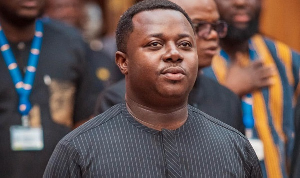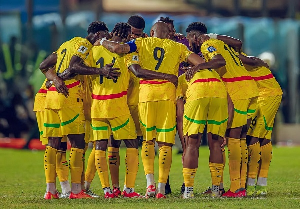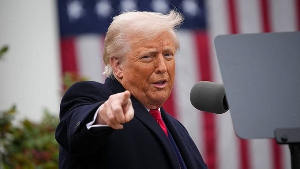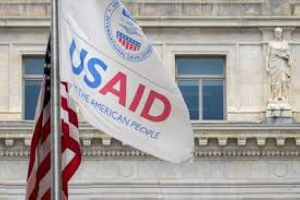The MTN African Cup of Nations, Ghana 2008 is finally over and the success of the tournament would continue to draw comments from various quarters until after Angola 2010.
The shaky start of the tournament when coaches complained about the pitches with some describing them as potato fields, to the accreditation and match ticket rumpus and the embarrassing fifteen minutes power-cut at the Essipon Stadium at Sekondi, Ghana 2008 has translated into a success story being described as one of the best tournament ever.
All organizational lapses have suddenly been forgotten because in spite of the not-up-to standard pitches and other things, the players gave out the best soccer display the continent has ever witnessed, putting fans on their toes the entire length of games with their silky moves.
Americans, who generally dislike soccer because of the scoring limitations, would not have been disappointed at Ghana 2008, which recorded a total of 99 goals, an average of about 3 goals per match, 6 more than the highest goal tally of 93 recorded in Burkina Faso in 1988.
This suggests a lot about the African game and it is no surprise that many have inferred that the high quality football displayed at the tournament is an indication that African football has finally emerged from the tunnel. There is no doubt about the professionalism displayed at the tournament, which demonstrates how African soccer stars have transformed themselves into giants of the game world-wide, especially in Europe where some of them virtually carry their clubs on their shoulders.
Whether the high level of football displayed at the Nations Cup is an extension of the growing stature of football on the continent is perhaps a long shot to call, not forgetting that barely two days after the tournament some clubs were banned from participating in the continental club championships for the failure of the Football Associations of their respective countries to settle their dues with the Confederation of African Football (CAF).
We can also not forget that over 60% percent of players who featured for the national teams are professionals plying their trades with foreign clubs in Europe and Asia. Could the standard at Ghana 2008 therefore have been an extension of the standard of football in Europe and Asia and not necessarily that of Africa?
Of course, African football has seen some progress and growth over the past years but the fact that African players are still too desperate to bounce off this continent to play in other continents, including playing in lower leagues in those continents is an indicator for the not-too-well development of the African game.
How many of the national teams have an overwhelming number of players playing their football in Africa. Incidentally some of these national teams have squads made up of only foreign-based players, except for example, the Sudanese and Egyptian teams which have majority of their players playing locally. Was it therefore a coincidence that the Pharaohs were the most formidable side, squashing all opposition on the way to glory?
The action on the field of play is just one aspect of the game that can be used as yardstick to measure the true nature of the development of football in Africa. And compared to the abundant talent and skill yet undiscovered on the continent, the growth of the sport is still too slow to ‘jiggy with it.’ Indeed the African game is destined for unimaginable heights when the right elements are coordinated effectively.
Soccer is no more about how well players can roll the ball or smack it into the net. It is business, about the only business that continues to attract huge investments in the form of purchase and payment to players and provision of logistics. How many manufacturing companies can afford to pay a single person over US$100,000.00 per week? This is the kind of money being splashed on players to have them play for clubs.
Naturally with this huge amount of investment, management is one aspect of the game that should not be trifled with and this sound management is what has made wonders for the game in Europe, Asia and the Americas.
Can we say the same for Africa, where front runners in the management of the game have portrayed themselves as the know-alls whose decisions should not be questioned? Is this not what is putting the African game into tatters? Investment is needed to provide the logistics that will provide the sport with the wings to take off but organizations are still hesitant in their decisions to put up their money.
And I dare say that the decision of CAF to punish footballers who win the African footballer of the year award but not able to attend the award ceremony by denying them the award, is just an example of the erratic decisions in African football.
If the winner of the award is decided by a plebiscite of national team coaches of the 53 members of CAF, what right has the president of the organization to take the award from any player who wins but was unable to attend the award ceremony for very important reason as in the case of Didier Drogba, who was allegedly denied the 2007 award because he refused to travel to Togo for the ceremony.
That is not to say that Mali international, Fredi Kanoute who eventually won the award did not deserve the prize, but Drogba had a crucial quarterfinal game 48 hours after the ceremony and the last thing he needed were distractions, and attending the ceremony would have provided plenty.
The ceremony is to recognize and award players for their contribution to the game in Africa, CAF should therefore consider the timing when the players would be available not when they are seriously engaged in a tournament.
A decade ago, countries had literally been forced to drag players from their bases in Europe just to feature for the national teams and even then when these players were finally hauled to the tournament they did not commit themselves. The situation is different today with players defying not only persuasions but also threats from their European and Asian clubs to join their national teams for the Nations Cup tournament. Let us not forget that the presence of the foreign-based players is a huge contributing factor that raised the level of the game at Ghana 2008.
A lot of decisions truly rest with the CAF president and his executive committee, but we hope he does not get drunk by that power to the point where the decisions they take are intended to satisfy their ego, rather than the entire continent.
We saw the rapport amongst players and amongst fans at Ghana 2008, which reinforces that sports can be used not only to unite and bring peace to Africa but also the much needed development.
For once, plans for developing Africa by using football or sports in general must leave the drawing board to the implementation stage. The human resource is there and I dare say capital is also available. We just need effective leadership to develop the local leagues so that players playing locally could earn equal respect from foreign national coaches just like their foreign-based counterparts.
Hopefully the 27th edition of the Nations Cup in Angola 2010 would open the gates for the African game even further to justify the hosting of the World Cup in South Africa months later, where the entire continent would be hoping an African team would win the golden trophy for the first time.
--------------------------------------------------------------------------------
Opinions of Monday, 18 February 2008
Columnist: Al-Hassan, Osumanu













